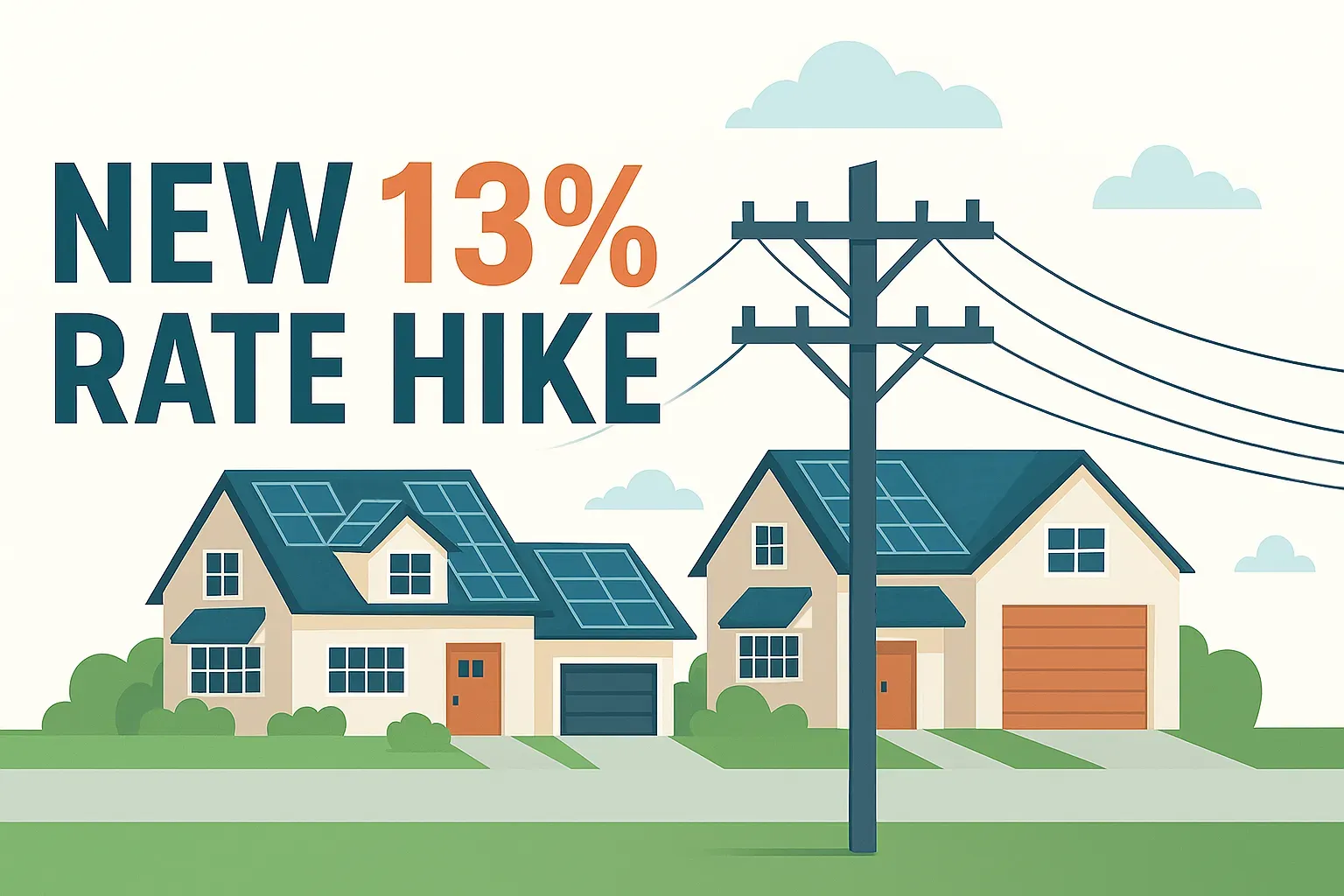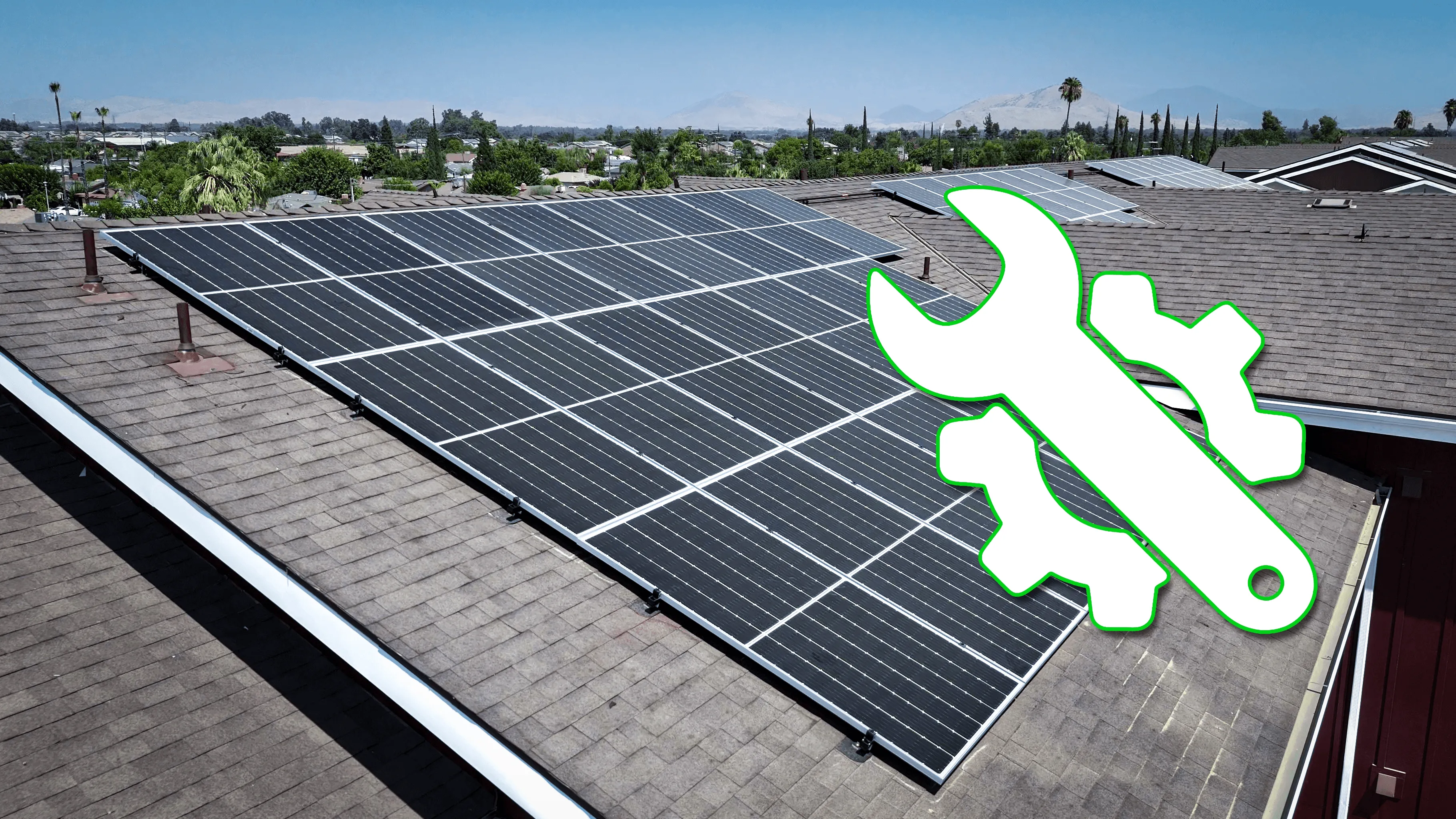Published On:
January 1, 1970
Residential solar panels have become a household name, coveted by homeowners seeking to reduce their energy expenses and minimize their carbon footprint.
With technology advancing at a rapid pace and installation costs decreasing, it's no surprise that more people are embracing the sunshine and switching to install solar panels for solar power.
Ready to harness the sun’s power and reduce your energy bills? Contact Option One Solar today to find out how solar energy can be tailored to fit your needs.
What Are Residential Solar Panels and How Do They Work?
Residential solar panels are a game-changer for homeowners looking to save on energy costs and reduce their carbon footprint.
These panels work by converting sunlight into electricity, providing a clean and renewable source of energy for your home.
Components of a Residential Solar Panel System
A residential solar panel system consists of several key components, including the solar panels themselves, an inverter to convert the DC electricity generated by the panels into AC electricity that can be used in the home, and a mounting system to secure the panels to the roof or ground.
How Solar Panels Convert to Solar Power
When sunlight hits the solar cells in the panels, it excites electrons and causes them to flow, generating direct current (DC) electricity.
This DC electricity is then sent to an inverter, which converts it into alternating current (AC) electricity that can be used to power appliances and electronics in the home.
Benefits of Residential Solar Panels
When you install solar panels, it brings a lot of benefits for you and your wallet.
Lower Electricity Bills
With a solar panel installation, in your financing options, you can say goodbye to those hefty utility bills and hello to lower monthly costs.
Increase Your Home's Value
Home sellers are reporting faster sale speeds and better prices due to their environmentally-friendly solar panel systems. Solar installation lessens payback period, bringing you your money's worth.
Factors to Consider When Choosing Residential Solar Panels
Finding the right residential solar panels requires a thorough examination of your options. This could include how solar panels cost to know the right solar companies that may help you in finding your solar panels worth.
Types of Solar Panels
There are three main types of solar panels used in residential installations: monocrystalline, polycrystalline, and thin-film.
Monocrystalline solar panels are the most efficient but also the most expensive.
Polycrystalline solar panels are slightly less efficient but more affordable.
Thin-film panels are the least efficient but can be a good option for homes with limited roof space.
Efficiency and Performance
Solar panels operate best when they're able to convert sunlight into electricity with maximum efficiency.
System Size and Configuration
The journey to going solar starts with considering a few key factors: your energy needs, available roof space, and budget.
A knowledgeable solar installer can help you pinpoint the perfect system size and layout for your home.
Additional Expenses to Consider
Going solar isn't just about installing panels on your roof.
It's about considering all the expenses that come with it.
That includes the cost of a solar battery storage system, solar tax credit, roof repairs or upgrades to support the weight of the panels, and ongoing maintenance and monitoring costs.
Maintaining and Monitoring Your Residential Solar Panel System
Regular monitoring and maintenance can make all the difference in maintaining optimal performance and extending the life of your system.
Regular Cleaning and Inspection
Cleaning and inspecting your solar panels annually is crucial to maintaining their peak performance.
To guarantee your equipment is in prime condition, our skilled technicians perform a thorough cleaning and inspection.
Monitoring System Performance
Thanks to advancements in technology, you can now monitor your system's performance from the comfort of your own home, effortlessly tracking energy production, consumption, and savings all from your laptop or mobile device.
Addressing Repairs and Issues
Despite proper care and upkeep, it's not uncommon for solar panel issues to arise.
Faulty connections, damaged equipment, and malfunctioning inverters can be frequent culprits, bringing operations of these solar power systems to a halt.
If you notice a sudden drop in performance or receive an alert from your monitoring platform, it's important to address the issue promptly.
Your solar installer should offer a warranty and repair service to help you diagnose and fix any problems with how your solar panels work.
FAQs About Residential Solar Panels
How long do solar panels last?
Solar panels are built to last, with most manufacturers offering warranties of 25-30 years or more.
With proper panel maintenance and care, a well-designed solar panel system can continue to generate clean energy for decades, providing long-term savings and environmental benefits.
What is net metering?
Net metering is a billing arrangement that allows homeowners with solar panels to send excess energy back to the grid and receive credit for it on their utility bills.
Under net metering, your meter runs backwards when your panels are producing more energy than your home is using, offsetting the cost of any electricity you draw from the grid at night or during cloudy weather.
How long does solar panel installation take?
The solar panel installation process typically takes 1-3 days, depending on the size and complexity of the system.
However, the entire process from initial consultation to final commissioning can take several weeks or even months, as it involves site assessment, design, permitting, and approvals from local authorities.
Start Your Solar Journey Today
Residential solar panels are a powerful option for homeowners today. They can save you money on electricity, help the environment by reducing pollution, and even give you more control over your energy use. While some research is needed to choose the right system for your home, the benefits of solar power are clear. Transform your energy solution with Option One Solar. Start your journey to sustainability now by scheduling your free consultation. Your future of cleaner, more affordable energy awaits.



